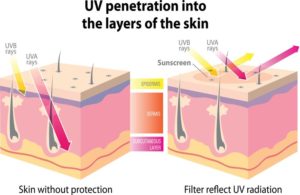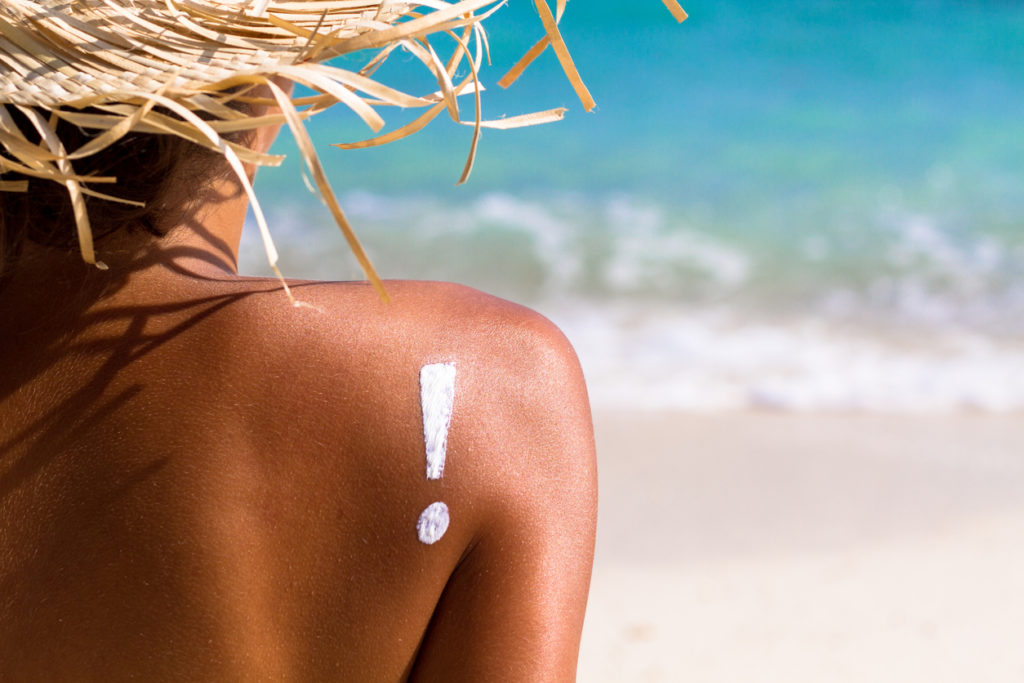In partnership with SA’s top medical aesthetic companies
Much of the sun’s energy comes in the form of UV (ultraviolet) radiation, which has a short wavelength and isn’t visible to the naked eye. The Earth’s atmosphere –particularly the ozone layer — filters out most of the UV radiation before it reaches us. But some gets through, and when these high-energy photons strike your skin, they generate free radicals and can damage your DNA directly.
UVB radiation causes sunburn and skin cancer, while UVA radiation is responsible for long term skin damage and ageing, as well as skin cancer, including melanoma. Apart from this, UV rays can also cause permanent damage to eyes.
Often forgotten, we also need to include longer wave visible light and InfraRed (IR) light as threats to our skin health.

Our only options to avoid the harmful effects of the sun are to limit exposure, wear protective clothing, and apply sunscreen. The role of sunscreen is to help filter out or reflect the remaining UV radiation from your skin with two main types of ingredients — inorganic particles and chemical filters.
Sunscreens basically act like a bulletproof vest for your skin, and most standard options contain more or less the same ingredients.
When choosing a sunscreen, it’s important to search the label for the word Broadscreen or Broad Spectrum (which means it protects against both UVA and UVB rays), as well as look for EU Colipa certification on European brands (a circle with UVA), to ensure it offers high UVA and UVB protection. Quality sunscreens increasingly include IR and visible light protection as well.
Then it’s up to you to choose the format you prefer — lotions, sprays, gels etc.
Inorganic aka mineral or physical filters — zinc oxide or titanium dioxide — actually form a physical barrier to reflect or scatter UV waves.
Organic chemicals absorb the UV rays through their chemical bonds so that our skin doesn’t. Popularly used chemical filters include Avobenzone, Mexoryl SX and Tinosorb. Avoid the chemical oxybenzone, a synthetic oestrogen that penetrates the skin and contaminates the body.
Antioxidants offer protection against visible light, which can supress the immune system, cause free radicals to form, damage our DNA and cause photo-ageing. It’s also our defence against invisible Infrared light, which causes free-radical damage as well as hyperpigmentation.
The Skin Cancer Association recommends using a generous amount of sunscreen and reapplying it at least every 2 hours.
Take the quick Beyond Beauty Survey and you could win a R2000 Skin Renewal voucher to spend in our online store, with free delivery within South Africa. T&Cs apply.
